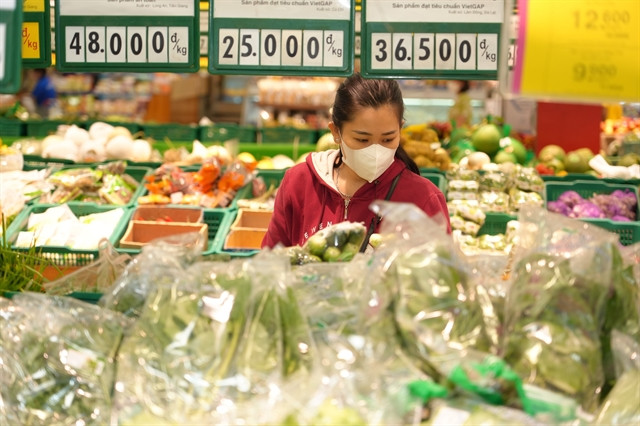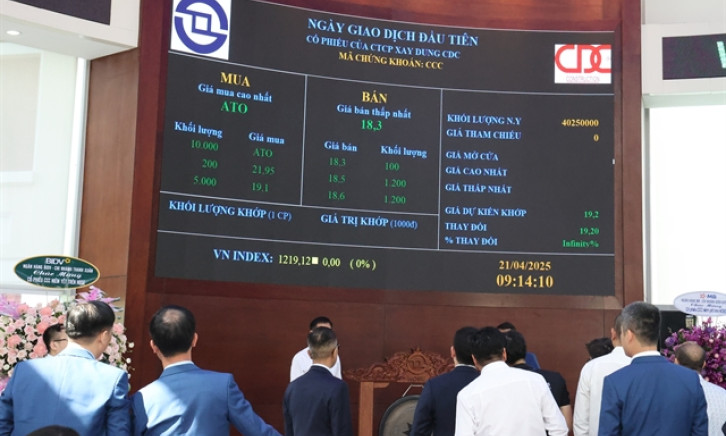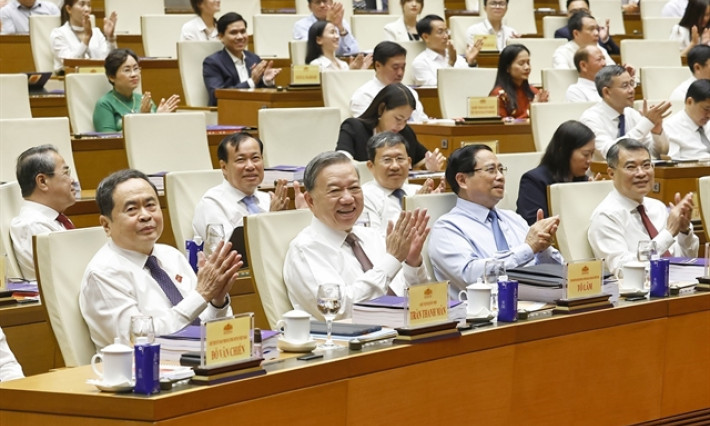Stronger solutions needed to boost domestic consumption demand
Domestic consumption is one among three drivers for growth, besides investment and export, and is the only pillar which finished the target last year with the total retail sales of goods and services rising by 9.6 per cent.
Việt Nam needs to apply stronger solutions to boost domestic consumption demand to drive economic growth this year.
Domestic consumption is one of three drivers for growth, besides investment and export, and is the only pillar which finished the target last year with total retail sales of goods and services rising by 9.6 per cent, according to the General Statistics Office’s report.
Public investment disbursement was estimated at 73.5 per cent of the plan while bottlenecks in the legal system, if not changed thoroughly, would continue to be a barrier in 2024.
Regarding trade, acceleration in the last months of 2023 could not help this pillar reach the finish line as import-export revenue fell by 6.6 per cent against 2022 to $683 billion, although the trade surplus was more than two times higher at $28 billion.
In the context of rising global uncertainties, aggregate demand was unlikely to recover to the level of the pre-pandemic period, so Việt Nam needs to take advantage of extensive and comprehensive cooperation to create momentum for 2024.
Lê Quốc Phương, former Deputy Director of the Việt Nam Industry and Trade Information Centre, said that the total retail sales of goods and services jumped quite high, by nearly 10 per cent, but the domestic aggregate demand was low. “The increase might be mainly from tourism and services, while consumption was not very positive,” Phương said.
Low consumption demand stemmed from the economic recession and a decrease in average income, forcing consumers to tighten spending.
A survey by PwC last year found that Vietnamese consumers had become more cautious with their spending habits. Specifically, 63 per cent of surveyed consumers tended to cut unnecessary spending due to concerns over rising prices, 54 per cent cut spending on luxury products and 13 per cent cut spending on grocery and food products.
According to Vũ Vinh Phú, an expert in trade, it is necessary to introduce appropriate policies to stimulate domestic purchasing power.
The Government’s policy of continuing reducing value added tax (VAT) by two percentage points to the end of June is a solution. However, the VAT reduction policy should be longer, together with bigger reductions for necessary products.
To stimulate domestic consumption, prices must be lower, Nguyễn Ngọc Hoà, President of HCM City Business Association said, adding that enterprises need support from the Government to implement demand stimulus activities.
Greater attention should be paid to developing the domestic market which plays a significant role in ensuring a firm foundation for the economy, economist Trần Đình Thiên said.
According to Lê Việt Nga, Deputy Director of the Domestic Market Department under the Ministry of Industry and Trade, the domestic market is always a foundation for Vietnamese businesses in all situations. “The domestic market needs to be further promoted with effective and practical demand stimulation programmes,” she said.






